Chevy Bolt family sales decreased in the United States and Canada during the first quarter of 2024, with 28 deliveries recorded in Mexico, 3 in Brazil, 62 in Colombia, and 10 in South Korea. As a reminder, the all-electric Bolt family includes the Chevy Bolt EV hatchback and the slightly larger Chevy Bolt EUV subcompact crossover, though GM offers only one of the two models in overseas markets.
Chevy Bolt Sales – Q1 2024 – United States
Deliveries of the Chevy Bolt EV and EUV in the United States decreased to 7,040 units in Q1 2024 compared to 19,700 units in Q1 2023. Sometimes, like this quarter, U.S. sales figures are not broken out for the Bolt EV and Bolt EUV but are combined.
Sales Numbers - Chevy Bolt - Q1 2024 - USA
| MODEL | Q1 24 / Q1 23 | Q1 24 | Q1 23 |
|---|---|---|---|
| BOLT EV | +2.15% | 7,040 | 6,892 |
| BOLT EUV | -100.00% | 0 | 12,808 |
| TOTAL | -64.26% | 7,040 | 19,700 |
Chevy Bolt Sales – Q1 2024 – Canada
Deliveries of the Chevy Bolt EV and EUV in Canada decreased 898 units in Q1 2024 compared to 2,982 units in Q1 2023. Sales of both the Bolt EV and EUV are reported on the same line item in Canada.
Sales Numbers - Chevy Bolt - Q1 2024 - Canada
| MODEL | Q1 24 / Q1 23 | Q1 24 | Q1 23 |
|---|---|---|---|
| BOLT EV | -69.89% | 898 | 2,982 |
| TOTAL | -69.89% | 898 | 2,982 |
Chevy Bolt Sales – Q1 2024 – Mexico
There were 28 deliveries of the Chevy Bolt EUV in Mexico during Q1 2024 compared to nine units in Q1 2023. The Bolt EV is not sold in Mexico.
Sales Numbers - Chevy Bolt - Q1 2024 - Mexico
| MODEL | Q1 24 / Q1 23 | Q1 24 | Q1 23 |
|---|---|---|---|
| BOLT EUV | +211.11% | 28 | 9 |
| TOTAL | +211.11% | 28 | 9 |
Chevy Bolt Sales – Q1 2024 – Brazil
There were 3 deliveries of the Chevy Bolt EV in Brazil during Q1 2024 compared to 14 units in Q1 2023. The Bolt EUV is not sold in Brazil.
Sales Numbers - Chevy Bolt - Q1 2024 - Brazil
| MODEL | Q1 24 / Q1 23 | Q1 24 | Q1 23 |
|---|---|---|---|
| BOLT EV | -78.57% | 3 | 14 |
| TOTAL | -78.57% | 3 | 14 |
Chevy Bolt Sales – Q1 2024 – Colombia
There were 62 deliveries of the Chevy Bolt EUV in Colombia during Q1 2024 compared to 43 units in Q1 2023. The Bolt EV is not sold in Colombia.
Sales Numbers - Chevy Bolt - Q1 2024 - Colombia
| MODEL | Q1 24 / Q1 23 | Q1 24 | Q1 23 |
|---|---|---|---|
| BOLT EV | * | 0 | * |
| BOLT EUV | +44.19% | 62 | 43 |
| TOTAL | +44.19% | 62 | 43 |
Chevy Bolt Sales – Q1 2024 – South Korea
Cumulative deliveries of the Chevy Bolt family in South Korea decreased to 10 units in Q1 2024, comprised of:
- 5 units of the Bolt EV compared to 18 units sold in Q1 2023 and
- 5 units of the Bolt EUV compared to 179 units sold in Q1 2023
Sales Numbers - Chevy Bolt - Q1 2024 - South Korea
| MODEL | Q1 24 / Q1 23 | Q1 24 | Q1 23 |
|---|---|---|---|
| BOLT EV | -72.22% | 5 | 18 |
| BOLT EUV | -97.21% | 5 | 179 |
| TOTAL | -94.92% | 10 | 197 |
Competitive Sales Comparison (USA)
Chevy Bolt family sales continued a downward trend during Q1 2024. Inventory of the discontinued current generation dwindles till the next-gen model arrives down the road.
The Ford Mustang Mach-E (see running Ford Mustang Mach-E sales) held first place among 13 models in the mainstream EVs segment, with a 77 percent jump in sales to 9,589 units. It was followed by sales of the Chevy Bolt family, which are combined this quarter, comprised of the Bolt EV (see running Chevy Bolt EV sales) and Bolt EUV (see running Chevy Bolt EUV sales), posting a 64 percent drop for 7,040 deliveries. The Hyundai Ioniq 5 crossover placed third, moving 6,822 units, up 19 percent, while the Volkswagen ID.4 took fourth with 6,167 deliveries, down 37 percent, and the Nissan Ariya followed in fifth with 4,142 sales, up 45 percent. The Kia EV6 crossover, the Ioniq 5’s corporate cousin and platform mate, placed sixth with a 20 percent swell to 4,059 units, while its larger sibling and a relative newcomer, the EV9 three-row crossover, took seventh with 4,007 deliveries – within 52 units of each other. The Ioniq 6 sedan, Hyundai’s second entry and the fourth from the Hyundai-Kia conglomerate, placed eighth with 3,646 deliveries. The Toyota bZ4X was ninth with a 12 percent upswing, moving 1,897 units, followed by the related Subaru Solterra in 10th, posting a 16 percent slip for 1,147 deliveries. The bZ4X and Solterra were developed jointly, sharing the same platform. Meanwhile, Nissan’s other entry here, the dated Leaf, saw sales drop 51 percent to 1,142 units, and another relative newcomer, the Chevy Blazer EV (see running Chevy Blazer EV sales), recorded 600 deliveries.
Sales Numbers - Mainstream EVs - Q1 2024 - USA
| MODEL | Q1 24 / Q1 23 | Q1 24 | Q1 23 | Q1 24 SHARE | Q1 23 SHARE |
|---|---|---|---|---|---|
| FORD MUSTANG MACH-E | +77.34% | 9,589 | 5,407 | 19% | 10% |
| CHEVROLET BOLT EV | +2.15% | 7,040 | 6,892 | 14% | 13% |
| HYUNDAI IONIQ 5 | +18.93% | 6,822 | 5,736 | 14% | 11% |
| VOLKSWAGEN ID.4 | -36.80% | 6,167 | 9,758 | 12% | 19% |
| NISSAN ARIYA | +44.83% | 4,142 | 2,860 | 8% | 5% |
| KIA EV6 | +19.66% | 4,059 | 3,392 | 8% | 6% |
| KIA EV9 | * | 4,007 | * | 8% | 0% |
| HYUNDAI IONIQ 6 | +1,542.34% | 3,646 | 222 | 7% | 0% |
| TOYOTA BZ4X | +11.72% | 1,897 | 1,698 | 4% | 3% |
| SUBARU SOLTERRA | -15.60% | 1,147 | 1,359 | 2% | 3% |
| NISSAN LEAF | -51.49% | 1,142 | 2,354 | 2% | 4% |
| CHEVROLET BLAZER EV | * | 600 | * | 1% | 0% |
| CHEVROLET BOLT EUV | -100.00% | 0 | 12,808 | 0% | 24% |
| TOTAL | -4.24% | 50,258 | 52,486 |
From a segment share standpoint, the Bolt EV family earned a 14 percent share. The Mustang Mach-E led with a 19 percent segment share, accounting for nearly a fifth of all sales here. The Ioniq 5 earned a 14 percent share, while the ID.4 posted a 12 percent share. The Ariya, EV6, and EV9 each held an eight percent share. The Ioniq 6 earned a seven percent share, while the rest of the field each posted a four percent share or less.
The two Chevy Bolt models compete in the mainstream electric vehicles (EV) segment, in which we currently include all mainstream (non-luxury) BEVs, including crossovers, hatchbacks, and sedans. The Bolts were recently joined by the Chevy Blazer EV as the third offering from GM here.
As more EVs enter the market, there will be enough similar vehicle types competing against each other to warrant a specific segment. At that time, we will break these out for more specific sales comparisons. Beyond the mainstream EV segment being discussed here, the remaining EV segment is the premium EV market that contains models from Tesla, Audi, Porsche, BMW, Mercedes-Benz, Lucid, Cadillac, Jaguar, and Genesis. Accordingly, we are not including Tesla models in the mainstream EV passenger car segment sales analysis since they are premium/luxury models.
It’s also worth noting that Hyundai and Kia offer EV models that also include variants with an internal combustion engine (ICE) and/or hybrid (HEV) and/or plug-in hybrid (PHEV) version. That includes the Hyundai Kona and Hyundai Ioniq (without a number), along with the Kia Niro. Consequently, these models do not offer a direct comparison to the Chevy Bolt family. As a result, these particular Hyundai and Kia models are now no longer included in our analysis. A related Hyundai model, the similarly named Ioniq 5, is all-electric, replacing the original Ioniq. While the Ioniq 5 is a crossover, the similarly named Ioniq 6 is an all-electric sedan.
The mainstream EV segment accounted for 50,258 deliveries during Q1 2024, down four percent year over year. This means that Bolt family sales significantly underperformed the segment average.
The GM Authority Take
Although Chevy Bolt family sales continued their recent downward trend, they still placed second behind crosstown rival Ford Mustang Mach-E. The Bolts were recently joined by the Chevy Blazer EV as GM now sports three all-electric models in the mainstream EVs segment. We expect Bolt figures to remain in the red since the Chevy Bolt family has been discontinued, awaiting the next-gen Bolt in the near future.
Overall, the Hyundai-Kia conglomerate easily claims the lion’s share of sales when combining its four entries offered here. And yet another all-electric model from the automaker is on the way, as the Kia EV3 was unveiled to rival the Chevy Bolt EV.
About Chevrolet Bolt EV and Bolt EUV
The 2023 Chevy Bolt EV received only minor changes over the 2022 Chevy Bolt EV, while the 2023 Chevy Bolt EUV got notable changes over the inaugural 2022 Chevy Bolt EUV, namely a new Redline Edition and limited expansion of Super Cruise driving coverage.
Both the Bolt EV and Bolt EUV ride on the GM BEV2 platform and utilize the same single-drive electric motor, which produces 200 horsepower and 266 pound-feet of torque and drives the front wheels. It’s fed by a 65 kWh lithium-ion battery, which provides 259 miles of range per charge for the Bolt EV and 247 miles for the Bolt EUV.
While Chevy Bolt EV and Bolt EUV production is officially over, GM CEO Mary Barra confirmed that the next-gen Chevy Bolt EV is on the way, scheduled to arrive in 2025 and for the 2026 model year. It won’t be a clean-sheet redesign but rather based on the current Bolt EUV.
When it does arrive, GM says the 2026 Bolt EV will be the most affordable electric vehicle in the U.S.
Here’s everything we know and expect regarding the 2026 Chevy Bolt EV.
The 2026 Chevy Bolt production is confirmed to take place at the GM Fairfax plant in Kansas.
About The Numbers
- All percent change figures compared to Chevy Bolt family sales in Q1 2023, unless noted otherwise
- In the United States, there were 76 selling days for Q1 2024 and 75 selling days for Q1 2023
- GM Q1 2024 sales reports:
- GM Q1 2024 sales U.S.A.
- GM Canada sales Q1 2024
- GM Mexico sales Q1 2024
- GM China sales Q1 2024
- GM Brazil sales Q1 2024
- GM Argentina sales Q1 2024
- GM Chile sales Q1 2024
- GM Colombia sales Q1 2024
- GM South Korea sales Q1 2024
- GM South Korea January 2024 sales
- Chevrolet South Korea January 2024 sales
- Cadillac South Korea January 2024 sales
- GM South Korea February 2024 sales
- Chevrolet South Korea February 2024 sales
- GMC South Korea February 2024 sales
- Cadillac South Korea February 2024 sales
- GM South Korea March 2024 sales
- Chevrolet South Korea March 2024 sales
- Cadillac South Korea March 2024 sales
- GM South Korea January 2024 sales

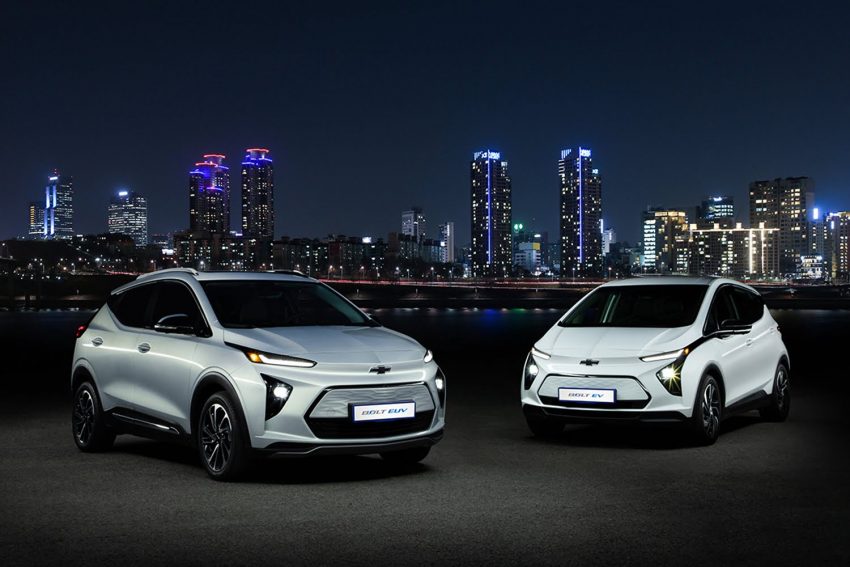
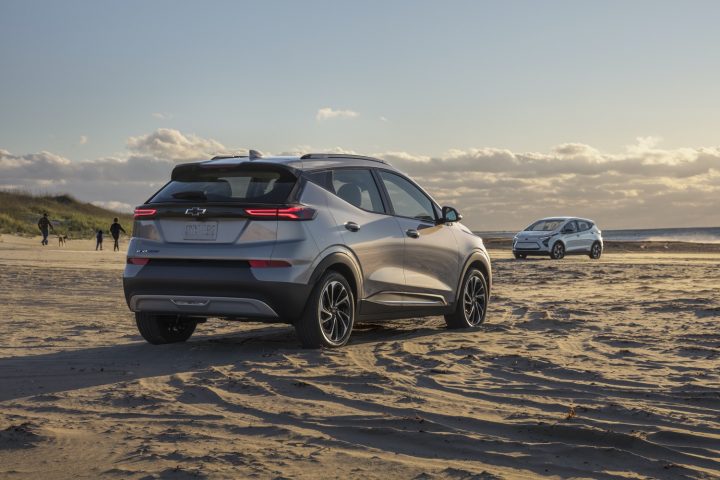
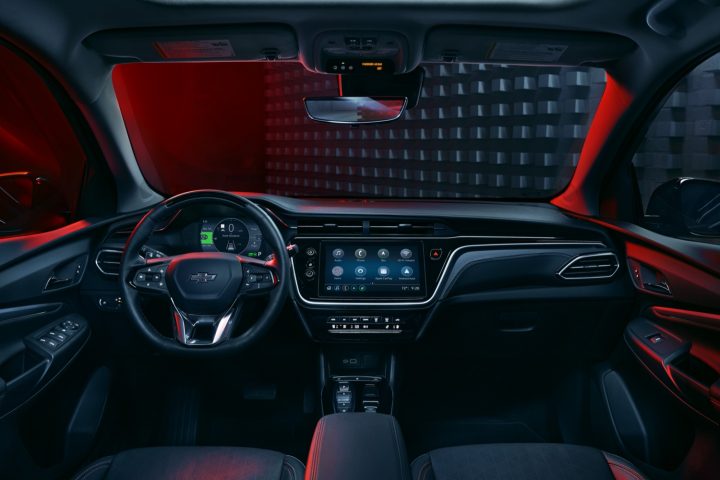
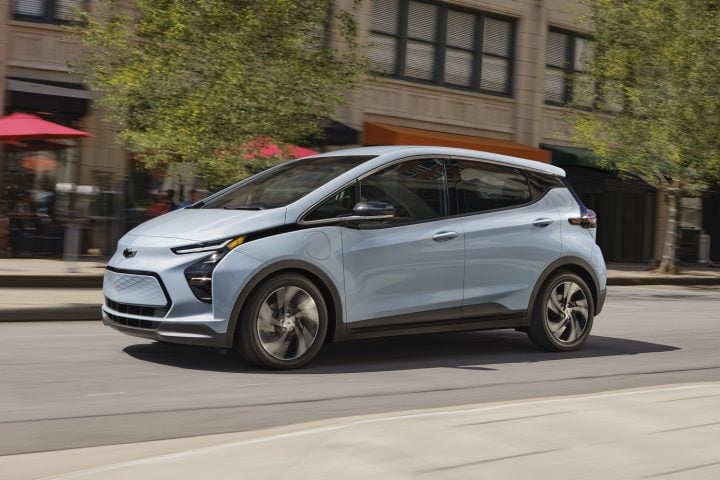





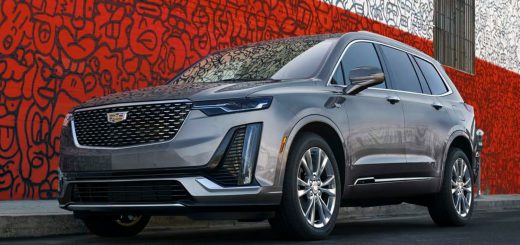
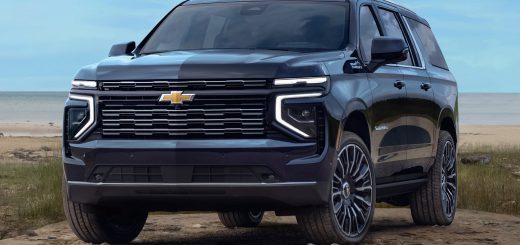
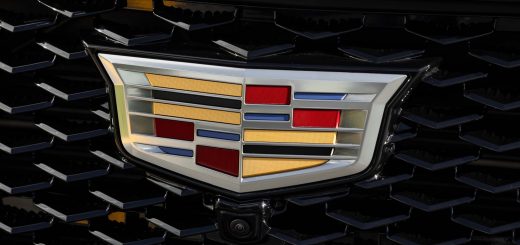
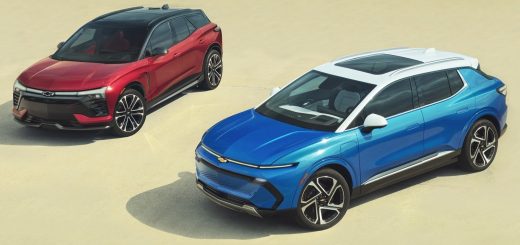




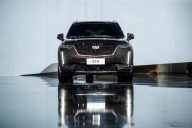

Comments
This is kind of what happens when a model is discontinued with nothing replacing it directly. All the dealers near me were out of the EUV months ago and had few of the base Bolt EV’s. Now they are all gone and the only thing they have to sell is used ones.
GM really needs that new Bolt out and now.
I purchased a Chevy Bolt EUV before they were discontinued. None of my local dealers in South Florida had one in stock. It was August of 2022. I didn’t receive delivery on it until March of 2023. It never seemed as if Chevy was serious about creating this vehicle in any kind of volume. I have a charger installed at home, this has been the best vehicle I’ve ever owned. I easily get about 300 mi per charge if I charged it to 100%. I normally don’t charge it more than 75% and don’t go below 30%. Most of my driving is in the city , so it’s perfect for my driving style which is about 50 to 75 miles a day. I now have nearly 15,000 mi on it with zero battery degradation. I do full charge every couple months to balance the battery management system and last full charge said 302 miles.
Paul: I agree 100% on everything you said. Mine is the regular Bolt EV since I needed the shorter car in order to fit in my garage with my two older Cadillac’s. haha.
Anyhow, I’m on my second Bolt EV and love them both. But I like this second one more since it’s the 2LT with all the features. I liked the first one so much that I decided to pick up this one at the very end before they were all gone. On the first, I averaged 4.7 miles per KWH over 16,000 miles. This one I’m at 4.8 per KWH (translates to 192 MPG-E) over 3,000 miles I usually only charge at home, so don’t care about the slower speed of charging. If charged to 100%, I’ve seen from 275 (in colder months) up to 334 just last week and the two of them average at 300 to 305 consistently. The Bolt’s are truly great little EV’s that should not have been stopped until the new one was rolling off the lines. But that’s GM for you. They would NEVER have done this if it was the trucks!!!
The sales of the various EV models is more interesting than the decline of sales in a discontinued model. That should be the headline. I almost missed the data.
Les décideurs chez GM abandonnent trop souvent leur meilleur produit. La Spark électrique un extraordinaire bijoux pour les jeunes aux études qui se déplacent en ville. ABANDONNÉ APRÈS 3 ANS.
La BOLT EV n’avait pas besoin d’une BOLT EUV moins performante ; et on n’arrête tout. Ce n’est pas très brillant comme connaissance du marché.
What I don’t understand is the comprehensive exclusion of Tesla sales numbers in the comparison chart. Tesla is an American company…it is just bizarre. You include the sales from other foreign-made vehicles, but not Tesla. Why?
Maybe not considered “mainstream,” which I take to mean non-luxury.
“You led Mary”
What a disgrace!